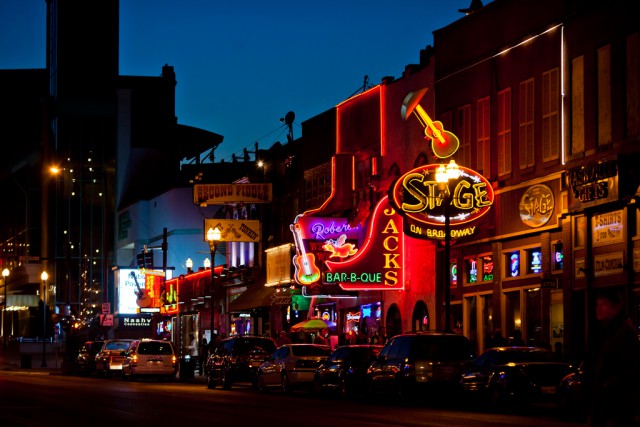“Covering American Issues, one city at a time”

In cities across the country, legislation bringing alcohol out of the bar and into the streets has gotten the green light from legislatures. In Huntsville, Savannah, New Orleans, Cincinnati, and small Texan towns, bar patrons can enter empty handed and leave with a solo cup. For business owners, liquor to go laws are an opportunity to make more money while policy makers see it as a way to bring more people into entertainment districts in their respective city. Given the growing attraction of visitors to Nashville, it is no surprise that the conversation has found its way into the bars of East Broadway.
As it stands presently, patrons must finish alcoholic beverages before leaving the premises, as instructed by Tennessee state law. A bill however has floated into the Tennessee Legislature that, if passed, will allow alcoholic beverages to leave bars and enter the streets. Early last week, Nashville’s city council made it clear they opposed any legislation that would bring alcohol out of the bar and into the streets.
There is currently a section in the metro code that allows anyone to carry open containers downtown as long as the cup does not come from a bar. Advocates for alcohol-to-go laws feel it would make it easier to identify who is drinking. To some bar owners, a natural extension to current president is the passing of this bill, but neither the current bill nor the one awaiting legislative approval are ideal.
Bringing alcohol out of the bars removes a certain level of responsibility that should be placed upon bar owners. Within the confines of an establishment, alcohol consumption can be monitored and contained. Once patrons hit the streets, with or without special labeled solo cups, there is a greater chance of alcohol related misdemeanors.
The state of Tennessee reported 20,339 arrests in 2011 alone due to drunkenness and 25,559 total arrests that same year from driving under the influence. Both the state and the city of Nashville should reconsider both pending legislation and present legislation. Instead of allowing individuals to roam the streets with alcohol, open containers should be restricted to homes and establishments. If policy makers want to attract more people they should consider other methods other than encouraging the consumption of alcohol – a drug, studies show, is more dangerous than marijuana, ecstasy, and LSD in regards to its damage on the body and the externalities associated with it.
But this conversation connects to a larger national conversation that the country has tiptoed around since the days of Prohibition. 31% of traffic deaths in 2010 were connected to alcohol and reports have connected the drug to numerous social problems, including absenteeism at the workplace making alcohol an economic issues as well as a societal issue. The sooner the federal government acknowledges America’s level of alcohol consumption as a serious problem, the sooner alcohol-to-go laws can be overruled.
Featured Photograph: Flickr.









